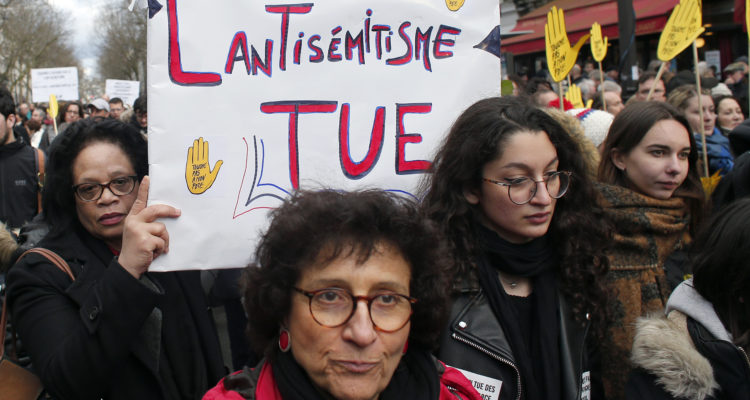There were several anti-Semitic incidents in Paris over the past few days whose cumulative effect shocked the government into speaking out.
By Batya Jerenberg, World Israel News
The French government called on the authorities on Tuesday to crack down on anti-Semitic offenses after a spate of anti-Jewish graffiti and vandalism hit the country this past weekend.
Government spokesman Benjamin Griveaux blamed instigators on the fringe of the weekly “yellow vest” economic protests. He told France 2 television that “those who are committing violent acts, openly anti-Semitic or racist acts must be charged and severely punished.”
But as the government’s own interior minister pointed out only the day before, anti-Semitism was a growing phenomenon even before the protests began last November.
On Monday, Interior Minister Christophe Castaner disclosed that there had been a huge upswing in police reports of anti-Semitic offenses between 2017 and 2018 – from 311 incidents to 541, a surge of 74 percent. His office later clarified that 183 of them involved physical assaults — and at least one murder — while 358 were verbal threats or insults.
“Anti-Semitism is spreading like poison,” Castaner said at the Paris memorial for Ilan Halimi, a young Jewish Frenchman kidnapped by a gang for ransom, tortured for three weeks and then murdered in 2006. Memorial planners discovered that a tree planted at the site in Halimi’s honor had been cut down.
There were several other incidents over the past few days in the capital whose cumulative effect shocked the government into speaking out. The word “Juden” (German for Jew) was painted on a bagel bakery window, and large swastikas were found scrawled on mailboxes showing a photo of Simone Veil, a Jewish former government minister. Graffiti lashing out at President Emmanuel Macron by using anti-Semitic tropes has also appeared on the building of French daily Le Monde.
Although the numbers indicate that Jew-hatred is increasing in the country, Jewish citizens are not immigrating to Israel in larger numbers. There was a spike in 2015, when almost 7,500 made Aliyah, but the figures have gone down since, with only some 2,600 moving to Israel in 2018.




